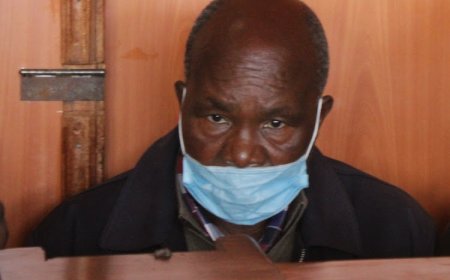THE HEALTH MINISTRY STARTS THE PROCESS OF MAKING TOBACCO RULES MORE STRINGENT.
The ministry stated in a statement on Wednesday that the Tobacco Control Board had started rewriting the act to create new laws and adjust to changes in the tobacco sector, particularly the emergence of new tobacco products.

The process of amending the Tobacco Control Act to impose restrictions on nicotine products has been initiated by the Ministry of Health.
As per the ministry, non-tobacco items like nicotine pouches were not anticipated by the 2007 Tobacco Control Act.
Schoolchildren in Kenya are fond of extremely addictive items, such as nicotine pouches and e-cigarettes.
The ministry stated in a statement on Wednesday that the Tobacco Control Board had started rewriting the act to create new laws and adjust to changes in the tobacco sector, particularly the emergence of new tobacco products.
According to the ministry, "the goal is to strengthen the legislation to more effectively govern the production, sale, advertising, and consumption of tobacco products."
It stated that the goal of this revision is to identify and close any gaps or shortcomings to strengthen tobacco control efforts and preserve public health standards.
Dr. George Githuka of the MoH's drugs and substances control division stated that the modifications will also revamp the solatium compensation fund, allowing civil society to access monies, during a stakeholders' meeting in January. Two percent of the sale price of tobacco goods goes toward funding the fund. The 2007 Act mandates government funding for tobacco control research, cessation, and rehabilitation programs, although it has never been put into practice. Githuka stated, "We're looking at reviewing the Tobacco Control Act and its regulations to cover not only nicotine products but also what's coming up next."
"We do want to work with partners in tobacco control to strengthen our partnership."
The tobacco industry's new products, which are marketed as aids in quitting smoking, are causing harm to brain development and other health issues, the World Health Organization warns.
Over eight million people worldwide die from tobacco use each year, according to WHO figures, with an estimated 1.3 million non-smokers also dying from secondhand smoke exposure.
There is no safe degree of tobacco exposure, the Global Health Agency adds, and all tobacco use is dangerous.
Because money spent on tobacco replaces other essentials like food and shelter, tobacco usage is one factor in poverty. According to WHO, tobacco is very addictive, making it tough to stop this spending habit.
Although the tobacco industry claimed that these new measures would lessen reliance on cigarettes, Githuka stated otherwise. However, in reality, they raise the danger of tobacco usage and conventional cigarette use," he stated in Nairobi.
What's Your Reaction?

























































